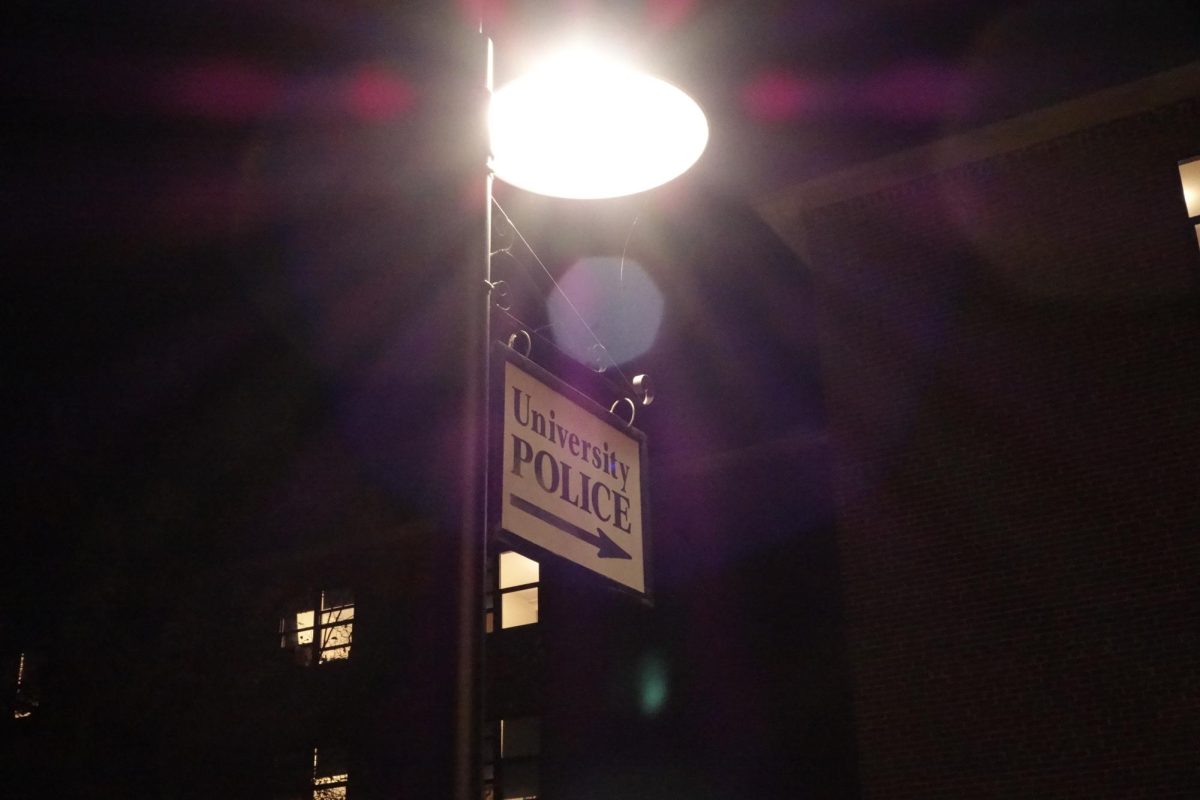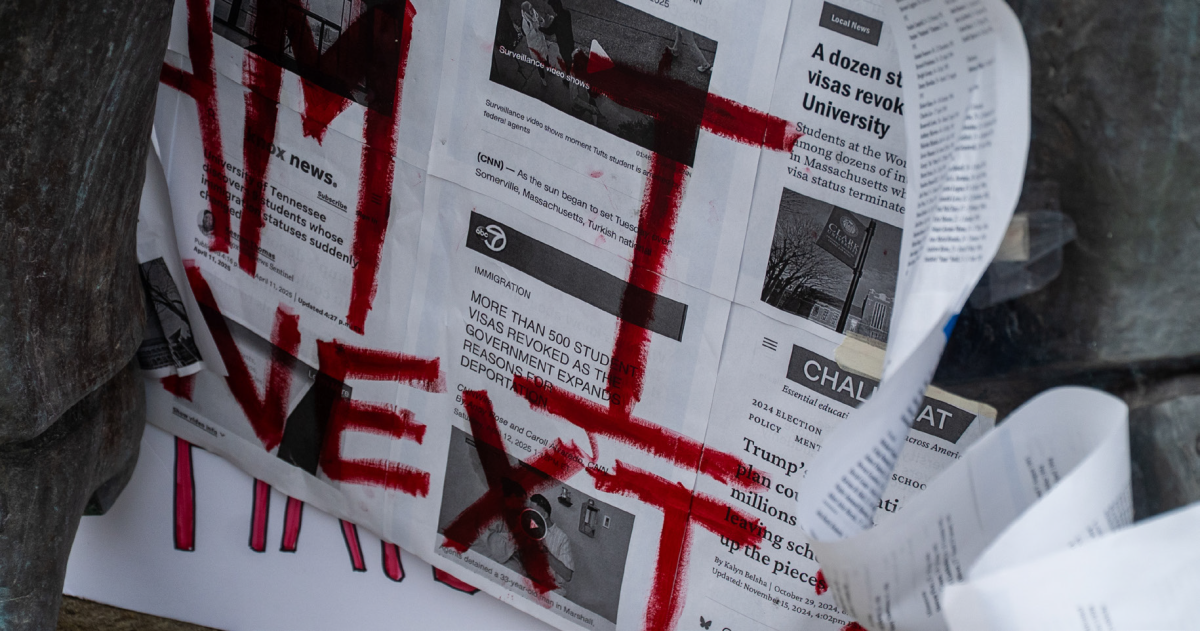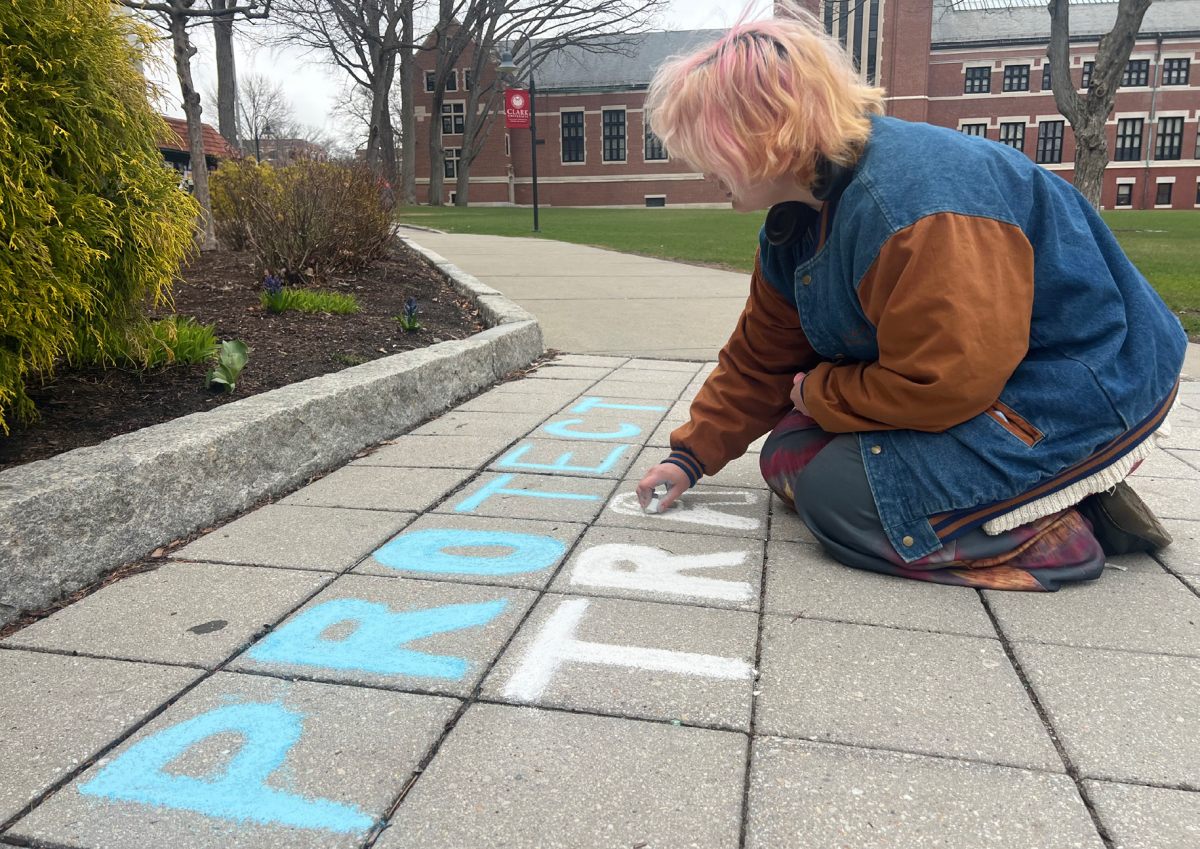The Scarlet connected with Lieutenant Kalah LaPlante, Sexual Assault Investigator and Rape Aggression Defense Instructor for CUPD, and set up a Teams meeting to discuss the parameters for the column. Following the initial Teams meeting, The Scarlet sent a series of general questions about CUPD to LaPlante and received a response on Aug. 15. We hope to be permitted an in-person interview for future editions.
This column will be ongoing, and its purpose is threefold: to increase transparency between CUPD and the student body, to inform Clark students about what CUPD does around campus and what initiatives they are undertaking, and to closely cover on-campus events and events in Main South that CUPD might influence. The goal is to connect students to the institutions around them, and to keep them knowledgeable about what those institutions are up to. As news unfolds—the annual Clery Report, changes in the department, whatever it may be—this column will cover it.
The Clark University Police Department (CUPD) is a team of certified Massachusetts State Special Police Officers based in the basement of Bullock Hall, a first-year dormitory at Clark. According to the University website, their services include Clark University Rapid Response (CURR), event detail, safety patrol, and lockout services.
So…What Is Up With UP?
Initiatives and Events
CUPD is unveiling three new initiatives for the 2024-2025 school year. The first is the Blue Envelope Program, meant to offer a “safer and more understanding environment” for drivers with Autism Spectrum Disorder (ASD). The Blue Envelope Program is a collaboration between
the Massachusetts Chiefs of Police Association, the Massachusetts State Police, Advocates for Autism of Massachusetts, and The Arc of Massachusetts. According to LaPlante, people with ASD and their families were also consulted in the creation of the program.
Drivers with ASD who enroll can receive a blue envelope, along with assistance printing copies of their driver’s license, registration, and a contact card from the CUPD office. The envelope contains “communication guidelines and instructions” for the driver and the officer in the event of a police encounter.
The second initiative is “education around calls for service regarding ‘suspicious persons.’” Many suspicious persons calls are made simply because the person appears “suspicious” without viable evidence, LaPlante wrote. Callers will now be required to report suspicious behavior to the dispatcher, such as “pulling on car door handles” or “looking into vehicle windows.” Officers will not be dispatched to calls where no suspicious behavior is provided.
The final initiative is a collaboration with the Center for Counseling and Personal Growth (CPG) through a tabling event “at the beginning of the semester.”
LaPlante added that CUPD is hosting or participating in multiple on-campus events this fall: the RAD program for women and non-binary individuals, National Coffee With a Cop Day, a beer and drug goggle event to “promote awareness and education around alcohol and drug use,” game night during winter break, and a bicycle safety session. CUPD will also provide snacks in the Academic Commons during exam periods, as well as bi-weekly tabling in the University Center.
CURR and CPG
Clark University offers alternate emergency services through Clark University Rapid Response (CURR) and the Center for Counseling and Personal Growth (CPG). CURR is run by student first responders and EMTs, though the CUPD advisor to CURR assists in more serious medical situations on Clark’s campus. LaPlante wrote that the CUPD officer “assists with evaluating the patient” and “providing real-time information to the responding medical personnel” in these circumstances.
CUPD officers are always dispatched for allergic reactions, cardiac events, head injuries, or alcohol and drug use.
In the case of a mental health emergency, students can call CPG at 508-793-7676 from 9:00-5:00 on workdays and the 24-hour hotline Uwill at other hours. LaPlante recommends also calling CUPD in a mental health emergency (508-793-7575).
CUPD will be notified if a student on campus calls 911 for any reason.
Police Bias
The Scarlet asked LaPlante about how CUPD has responded to concerns raised by various student groups regarding police bias in previous years.
LaPlante first cited a “bridge the gap” event in which students and officers “engage[d] in open dialogues between members and officers sharing their experiences with law enforcement throughout their lives.”
“This provided a safe space to engage in less formal conversations in a comfortable setting,” LaPlante wrote. “We are open to planning a similar event in the near future.”
LaPlante wrote that she and Sergeant Michael Sabatalo worked with Clark University Identity, Student Engagement, and Access (ISEA) to present to Advancing Clark Excellence (ACE) and Connections students in the past. Police Chief Lauren Misale “worked closely” with the Task Force on Campus Safety and Security over four listening sessions to “review overall campus police practices and explore alternative policing models.” CUPD also hired a civil rights officer, and adopted a “single officer response” in certain situations. It is important to note that the author attempted to find the civil rights officer in the university’s director, but was unable to do so.
LaPlante wrote that the Campus Ambassador Program has taken over some duties that previously fell to CUPD. Further, student-run clubs and athletics programs no longer receive their building keys from CUPD, but instead from the Kneller and the University Center, among other locations.
“When feasible, we now wear ‘soft uniforms’ which are comprised of a polo shirt, cargo style pants and minimal equipment,” LaPlante wrote. “We recognize that seeing a fully uniformed officer can be intimidating and triggering based on your lived experiences.”
LaPlante provided several avenues through which students can file complaints against CUPD officers: speaking with a supervisor either by calling CUPD, visiting the University Police station, or emailing [email protected]; completing the online form on their website; and contacting Human Resources or the Dean of Students Office. Submitted complaints are reviewed by Chief of Police Lauren Misale, Executive Vice President and CFO Danielle Manning, Associate Vice President and Chief Human Resources Officer Randi Nichols, and the Director of Human Resources.
LaPlante encouraged students with questions or concerns to contact CUPD at [email protected] or the Dean of Students Office.
That’s it for this month’s column! Stay tuned for upcoming additions throughout the school year.




